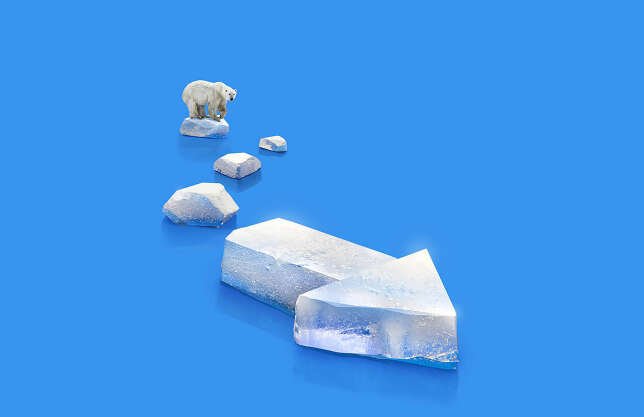Faced with the climate catastrophe, some advocate a “positive attitude”

For over ten years now, Kathryn Murdoch has been prioritizing her money to environmental causes. The American philanthropist explains that she is acutely aware that the planet will become inhospitable if we do nothing to stop climate change.
For years, this is the message that she and her colleagues have tried to convey. “We are shouting ourselves hoarse, she confides. But shouting is of limited use.”
Avoiding gloom
We met her at the beginning of spring. Kathryn Murdoch and Ari Wallach, author, producer and futurist, had just released their new documentary series, A Brief History of the Future (“A brief history of the future”, unpublished in France). Filmed in a very cinematic way and exuding a “positive attitude”, the six-episode series follows in the footsteps of Ari Wallach, who travels the world to meet scientists and activists and, from time to time, artists and artists. athletes, who all share the same optimistic vision of the future.
In one episode, we are treated to a visit to a floating village or a discussion on artificial intelligence with the (Canadian) musician Grimes. Footage shows marine biologists lovingly restoring a coral polyp to a reef. From one end of the series to the other, the atmosphere is cheerful, positive, almost dreamy. On purpose, observes Ari Wallach.
“It’s something to scream about. But there is also something to dream about.”
The documentary series joins several recent works and series offering a less dark vision of a world grappling with a planetary catastrophe. And breathes climate optimism instead of fatalism.
Focus on resilience
In the test Not the End of the World. How We Can Be the First Generation to Build a Sustainable Planet (“No, It’s Not the End of the World: How We Can Be the First Generation to Build a Sustainable Planet,” unpublished in French), data scientist Hannah Ritchie argues that many indicators of catastrophe are less dire than the public thinks (the deforestationoverfishing) or that the problems are less insoluble than we think (the plastic pollution in the oceans).
Taking the form of a series of letters to his son, the book Life as We Know It (Can Be) (“Life as We Know It (and as It Could Be),” by CNN climate expert Bill Weir, focuses on human capabilities and resilience.
In the test Saving Ourselves. From Climate Shocks to Climate Action (“How to save ourselves: from climate shocks to action”, unpublished in French), sociologist Dana Fisher argues that the repercussions of climate change could give rise to a mass movement which will finally obtain results for the global scale. It is also to Dana Fisher that we owe the expression “apocalyptic optimism”, designating the idea according to which humankind can still avoid the worst effects of climate change.
Take off our dark glasses
In the face of apocalypse, these works all stress the importance of remaining hopeful. Their authors suggest that it may be optimism that ultimately drives us to act.
If Americans are less inclined than their counterparts in other industrialized countries to take stock of the climate threat, recent polls show that a significant majority of them today recognize that climate change is real, and a smaller majority that it is of human origin and dangerous. Even if almost no experts believe that we are doing what is necessary – in terms of technology, legislation or political pressure – to mitigate its deleterious effects.
Apocalyptic predictions have failed to motivate us. Perhaps we will decide to work towards a




